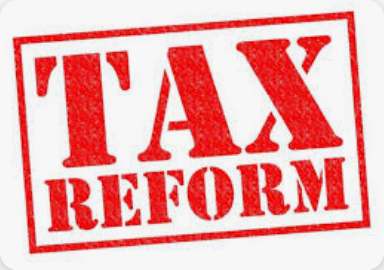Recent fiscal policy changes in Nigeria stem from extensive tax reform initiatives which aim to boost financial revenues while improving business conditions throughout the nation. These reforms have far-reaching implications for various sectors of the economy, including forex trading in Nigeria , which relies heavily on a stable and predictable fiscal policy framework.
The Nigerian Senate adopted four vital tax reform measures in 2025 to increase government financial capabilities and improve fiscal system performance. The economic reform plan includes these legislative changes to resolve Nigeria’s low tax-to-GDP ratio of 10.8% while reducing national budget reliance on borrowing. The tax reforms establish a unified Nigeria Revenue Service to enhance tax collection efficiency along with raising the value-added tax rate to 12.5% beginning the following year and reducing corporate income tax to 27.5%.
The new tax framework creates better business opportunities through its corporate income tax rate reductions from 30% to 27.5% before reaching 25% in future years. Businesses that earn less than ₦50 million annually in turnover have complete exemption from income tax and withholding tax payments. MSMEs receive substantial benefits through these tax reforms because they represent the fundamental sector of Nigeria’s economy.
The tax reforms provide personal income tax exemption for workers who earn less than ₦800,000 annually. The new tax reforms include exemptions for essential products and services including food items together with healthcare needs and educational requirements and electricity services from VAT. The planned VAT increase strategy aims to defend vulnerable groups while obtaining additional revenue while providing social protection measures.
These modifications will create major changes to Nigeria’s financial condition. The government targets an 18% tax-to-GDP ratio by the end of 2025 through its efforts to expand tax collection and improve tax enforcement. The higher tax ratio makes Nigeria match international standards and strengthens its economic stability which enables better handling of external disturbances and service funding and infrastructure development.
Businesses welcome these reforms because they create predictable taxation rules which drive investment growth. The government has reduced business tax burdens through elimination of minimum tax requirements and improved interest deduction policies which supports expansion and innovation and long-term planning.
Nigeria’s structural adjustment program gains support through these reforms. The removal of fuel subsidies together with exchange rate unification operate under the same fiscal consolidation framework. These measures form part of an economic framework which aims to enhance transparency and efficiency within the system.
These reforms face widespread opposition although they aim to bring advantages to the population. Higher VAT rates face opposition from critics because they anticipate increased inflation in urban regions with their existing expensive living conditions. The newly formed Nigeria Revenue Service faces challenges because of its limited administrative strength to stop tax evasion while ensuring proper tax compliance. The government demonstrates strong political determination to advance these reforms as it works to resolve persistent fiscal management problems.
Business operations in Nigeria require immediate adaptation to these reforms particularly for sectors that depend on regulatory stability. Businesses must review their financial systems and tax strategies and operational methods to stay compliant and reduce expenses. Multinational corporations together with financial institutions expect increased tax authority oversight because authorities will strengthen their revenue leak detection mechanisms.
Digital tax administration tools have introduced revolutionary changes to the tax collection and monitoring processes. The implementation of electronic invoicing together with centralized tax ID systems and automated reporting systems will reduce fraud while improving transparency levels. The nationwide implementation of these tools requires patience since they represent a crucial advancement in modernizing Nigeria’s tax infrastructure.
These reforms will succeed mainly because of their proper execution combined with public support. Public awareness campaigns need to work together with stakeholder participation to eliminate false information which will create a society that follows tax laws willingly. The reforms need strong institutional support together with fair enforcement mechanisms to preserve their credibility.
Proper management of tax reforms throughout time will create a more dynamic economic environment for Nigeria. A better fiscal situation enables the government to spend more funds on healthcare, education, transportation and energy sectors which directly impact both population quality of life and business operational efficiency. The government will become more creditworthy as a result of its healthier fiscal situation which could decrease its borrowing costs from international markets.
The economic reforms in Nigeria will reveal their effects more clearly throughout public and private sectors over time. The evolving fiscal environment requires all businesses, investors and citizens to adjust to its new framework. This transformation could help people identify fresh business possibilities within an economy that is better structured and more equitable and growth-oriented.



